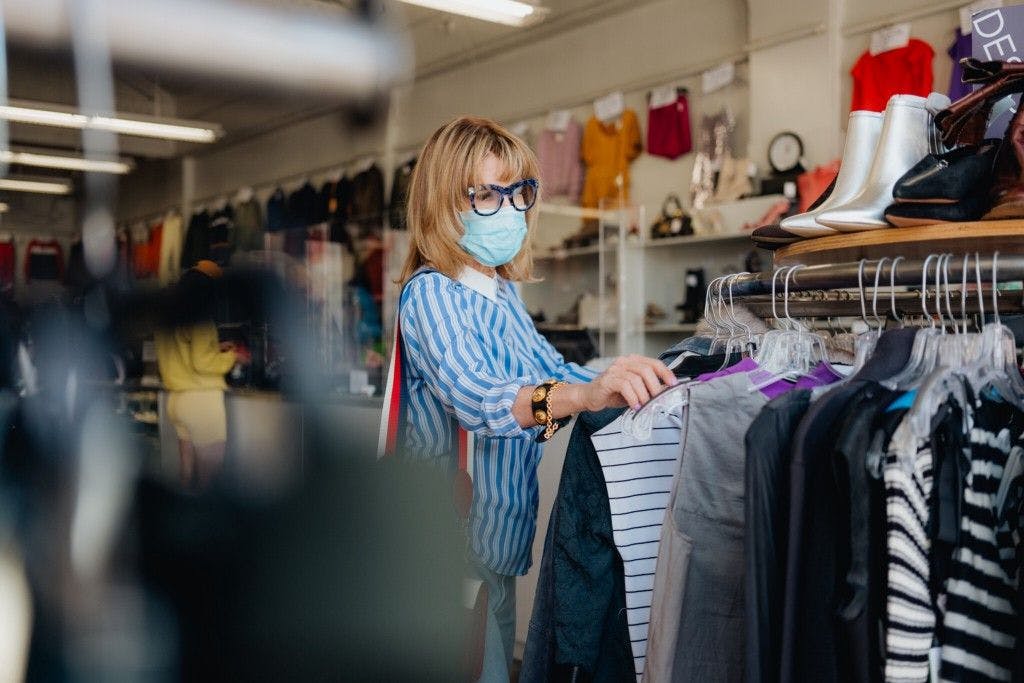The Future Growth of Beverages
FOOD & BEVERAGE
What are the trends shaping the future of the category? What new behaviours and interests should brands focus on? Discover three of the rising movements detected by our platform in this article.

Although it may seem like a broad question and very difficult to address, this should be the starting point for every brand and company planning their next marketing and sales strategies.
The importance of anticipating changes in consumer behaviour, new interests and rising trends can’t be overstated.
In this article, we present a sneak-peek on some of key trends for the prospect of the Beverages category. If you want to know more, you can contact us or download the full report here.
Next-Level Seltzers
We all know hard Seltzers have already conquered North American consumers concerned over high calorie counts and sugar content of alcoholic drinks and that now they go for the European consumers. But did you know that the next step in this trend will be alternative products to alcoholic sodas such as hard kombucha?
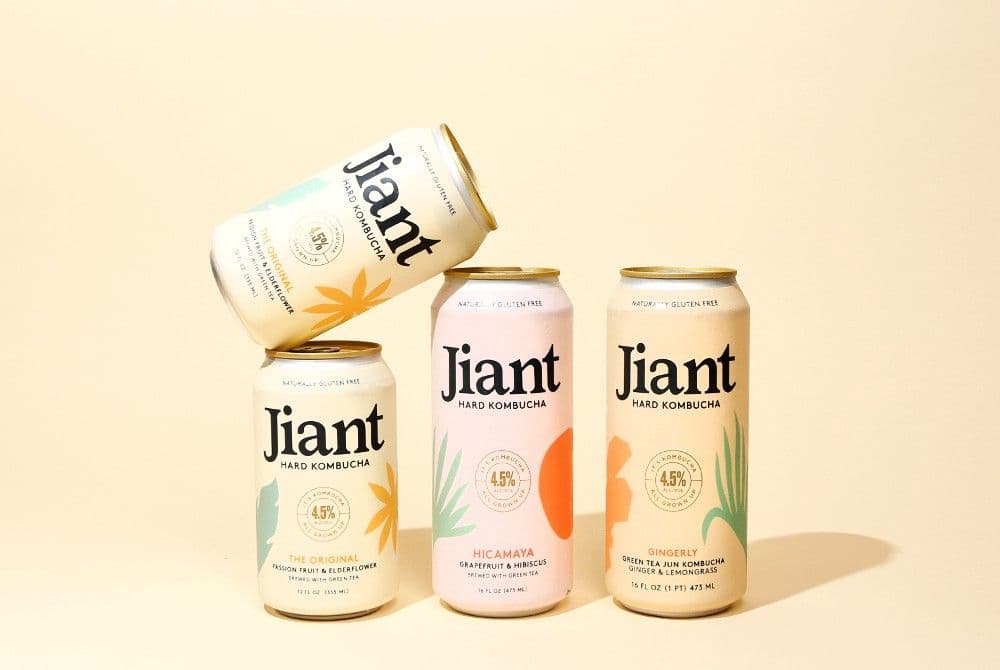
Image Credit: Jiant
Our platform was able to detect a shift in the trend around Seltzers, which has been especially popular during mid-2019 and 2020.
By analysing what users are saying around this topic, we were able to discover a new interest around hard kombucha, a product that is natural, organic and offers the perfect level of alcohol.
Gut Care
The gut’s perception as a “second brain” is transforming the world of functional beverages. Probiotics are becoming highly demanded and yogurts are no longer the only products that offer them, as new drinks are entering the markets.
For instance, Chobani has moved to a new territory with its recent launch of an organic, plant-based and functional drink: Chobani Probiotic.
As its fermented with probiotic cultures, it supports digestive and immune health.
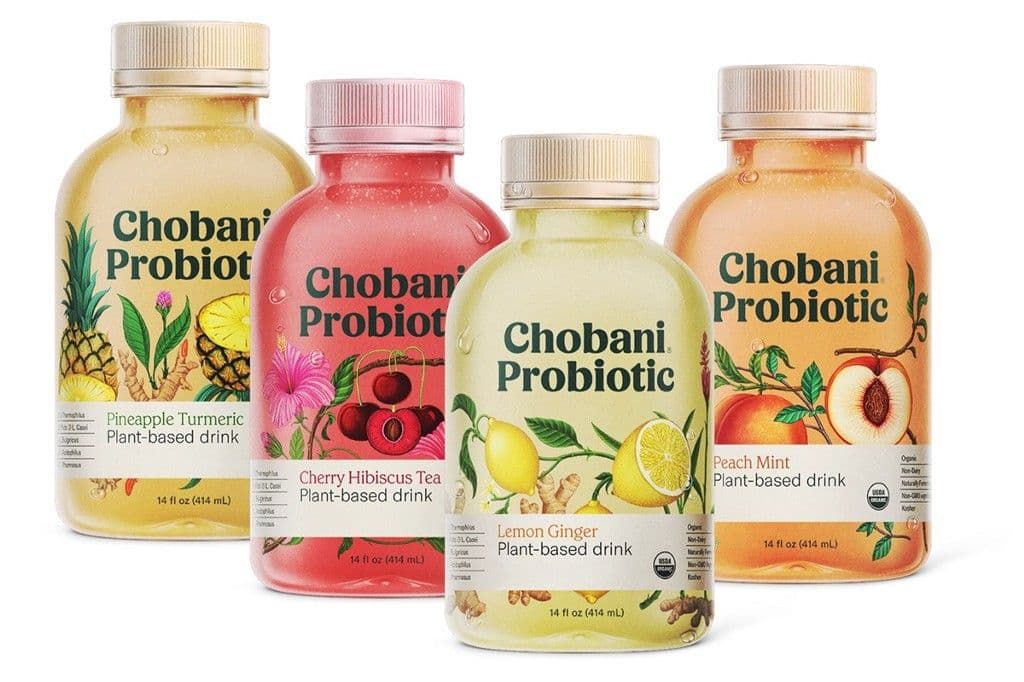
Image Credits: Chobani
While interest in probiotics and the microbiome has been somewhat consistent in recent years, our AI predicts that interest in gut-friendly drinks will continue to grow remarkably over the next six months.
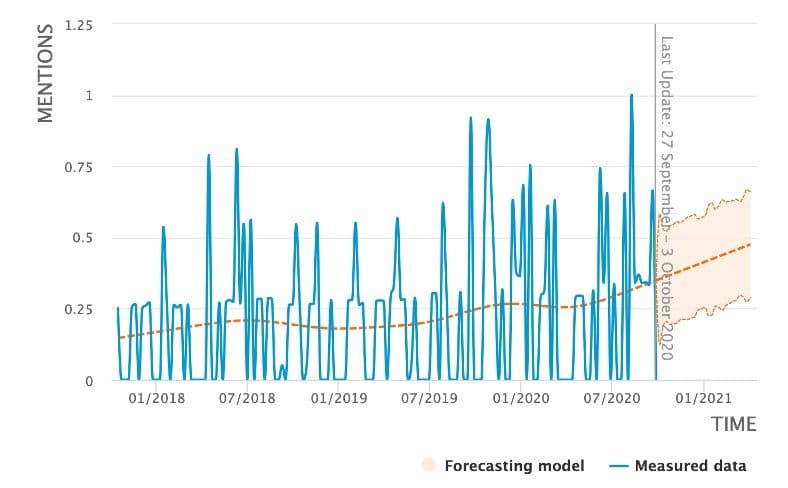
Timeline showing the popularity of the combination of the terms ‘gut’ and ‘drinks’.
Upcycled Drinks
The environmental trend in Food & Beverage has evolved and a new technique of production is growing: Upcycling.
The use of discarded ingredients is an increasingly used technique for making beverages and it will escalate in the following months, as our platform indicates.
Brands of alcoholic beverages have already been working on this trend.
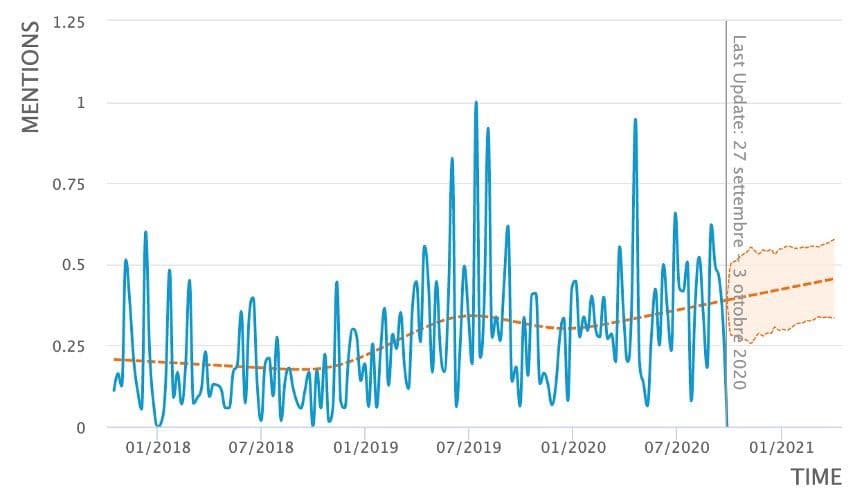
Timeline showing the popularity of the following behaviours: “Ingredients”, “Upcycled” and “F&B”; Okara in “Food & Beverage”; Upcycling in “Food & Beverage”.
For instance, Seven Bro7hers have been developing upcycled products by joining forces with Kellogg’s, the major food company.
The brewery created well-tasty sustainable beers using recycled cereals, specifically discarded grains created in the cereal cooking process. Kellogg’s Corn Flakes were used to replace some of the wheat grain in the beer mix during the mashing process of making Throwaway IPA. Rice Krispies replaced the malted barley in their Cast Off Pale Ale and Coco Pops replaced the malted barley in Sling it Out Stout.
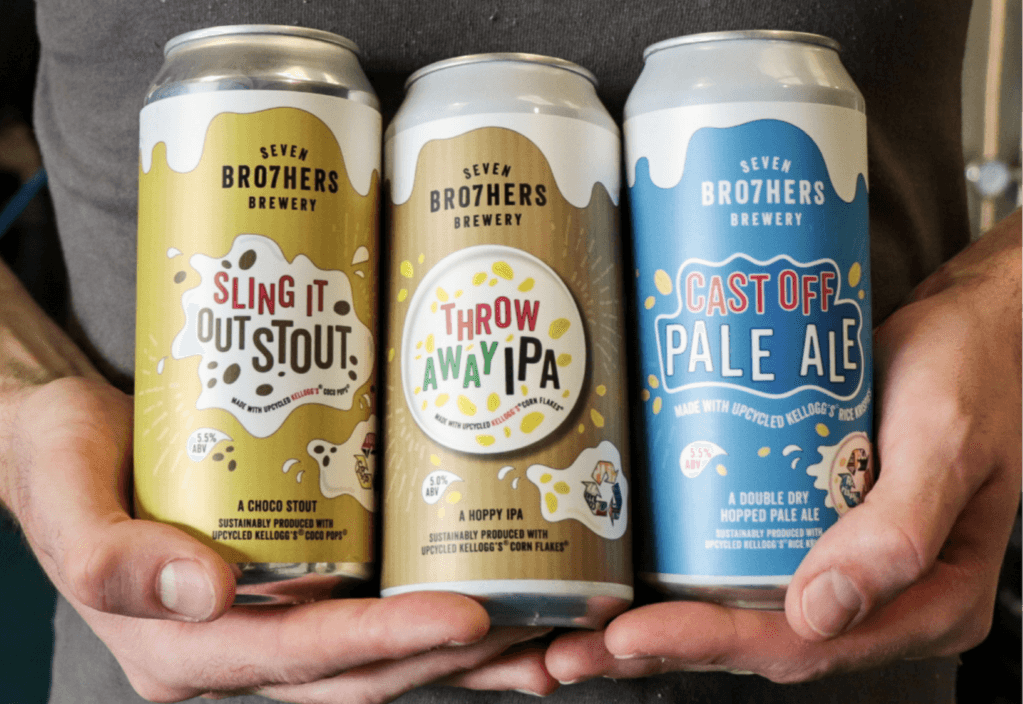
Image Credit: Seven Bro7hers Brewery.
Trend lines, data, and information described in this article emerge from the ongoing analysis performed by Nextatlas on its global observation pool made of innovators, early adopters, industry insiders expressing their views on Twitter, Instagram, and Reddit.
To learn more about our AI, discover Nextatlas Methodology here
Related articles:

NEXTATLAS x EKIP
Tomorrow’s Creative Careers: How Backcasting Helps CCIs Navigate What’s Next
Italy
Torino - Via Stampatori 4, 10122(Operational headquarter)+39 011/0864065VAT number and registration number at the Registro delle Imprese di Cagliari: 03428550929 paid share capital € 167.740,00 — © 2024 iCoolhunt SpA.


